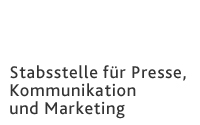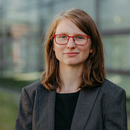Executive Department for
Press, Communication and Marketing
Adolf-Reichwein-Straße 2a Gebäude AVZ (Gebäudeteil AR-NA) 57068 Siegen
Phone: +49 (0)271/740-4915 Fax.: +49 (0)271/740-4911 E-Mail: presse@uni-siegen.de
“Grease Monkeys” vs. Technology Experts
Being qualified as an automotive mechanic is highly regarded in Germany, while in England it is typically seen as a second-class career. Prof. Erika Gericke of the University of Siegen is exploring the differences and commonalities in both countries regarding the vocational education training for automotive mechatronics.
In Germany, the statistics show that training as an automotive mechatronic has been one of the most popular career choices for young men over the past decade, which reflects the generally strong reputation for the field among the population. The situation in England is quite different. The differences (and commonalities) between Germany and England regarding the vocational educational training of automotive mechatronics is one of Prof. Erika Gericke’s (University of Siegen) research subjects Gericke is a Professor for School and Instructional Development in Vocational Colleges
Traveling to Saxony-Anhalt and Cornwall, England, Gericke visited vocational schools, observed teachers and students, as well as their relationships, communication, and activities. She also conducted extensive interviews with teachers and students. “I am seeking to highlight differences and commonalities so as to show how education is shaped by culture,” Gericke explains. Her first findings are now ready for presentation.
Fundamentally, most people in England view occupations requiring an apprenticeship as second-class careers, Gericke reports. Automotive mechatronics are still frequently regarded as “grease monkeys,” something that the older generation in particular has had to fight hard against. “In general, you can say that the self-worth of the students is very low when they begin their training.” Things look quite different in Germany: also due to the German dual system, the reputation among the population and on the labor market is (still) high, Gericke reports. According to statistics from organizations such as destatis and the Arbeitsagentur, training as an automotive mechatronic remains far and away the most popular profession for men — which is why Gericke chose to focus on it.
Training without a professional goal
Gericke was quite surprised by one factor: “Many young people in England undertake this training out of private interest, and not because they intend to actually work at a garage at some point.” In Germany, by contrast, the training is almost always part of clear career goals.
Furthermore, in England it is often the case that many garages specialize in specific components, such as brakes or tires. This is reflected in the strong modularization of vocational training there: This is quite different from Germany, where trainees’ apprenticeships last three-and-a-half years, after which they can repair all aspects of a vehicle. English trainees study only a certain number of modules, and subsequently can only repair vehicles based on the specific modules that they studied. In Germany, by contrast, trainees receive a comprehensive education, making them independent and capable of working for many different companies.
In England, the process is predominantly market-oriented
In fact, English vocational schools as a whole are extremely market-oriented. This is reflected in the teachers’ assessments as well. They must achieve certain target quotas. “If teachers miss those targets, then their contracts might not be extended,” Gericke reports. While in England, even long-serving teachers are constantly subjected to performance reviews for their lessons, in Germany those assessments end with successful completion of the second state examination.
Yet despite all these differences, there are also a number of commonalities. In both Germany and English, teachers perceive the volume of administrative work as excessive. “Many reported to me that it costs them time that could be spent on students and preparing lessons.” Another similar factor in both countries: In order to better support the students, they are grouped according to three performance levels: weak, medium and strong. In both countries, differentiated teaching for the various ability groups is mainly implemented by means of classroom discussion.
Contact
Prof. Dr. Erika Gericke
Schul- und Unterrichtsentwicklung am Berufskolleg, Universität Siegen
Email: erika.gericke@uni-siegen.de


